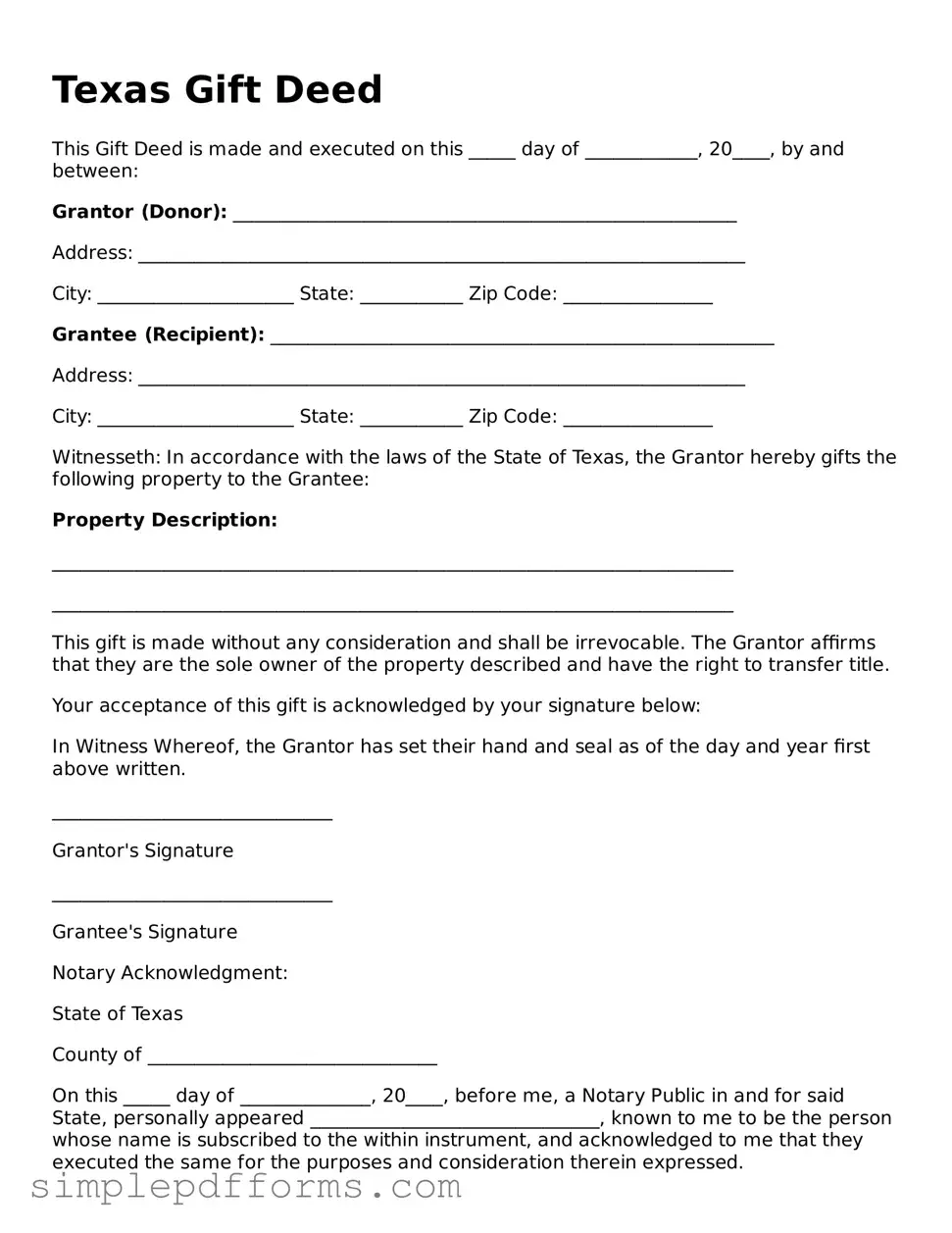Attorney-Verified Gift Deed Document for Texas State
A Texas Gift Deed form is a legal document used to transfer property ownership without any exchange of money. This form allows an individual to give property as a gift to another person, ensuring that the transfer is documented properly. Understanding the requirements and implications of this form is essential for both the giver and the recipient.
Open Gift Deed Editor Now

Attorney-Verified Gift Deed Document for Texas State
Open Gift Deed Editor Now

Open Gift Deed Editor Now
or
Get Gift Deed PDF Form
Your form is waiting for completion
Complete Gift Deed online in minutes with ease.